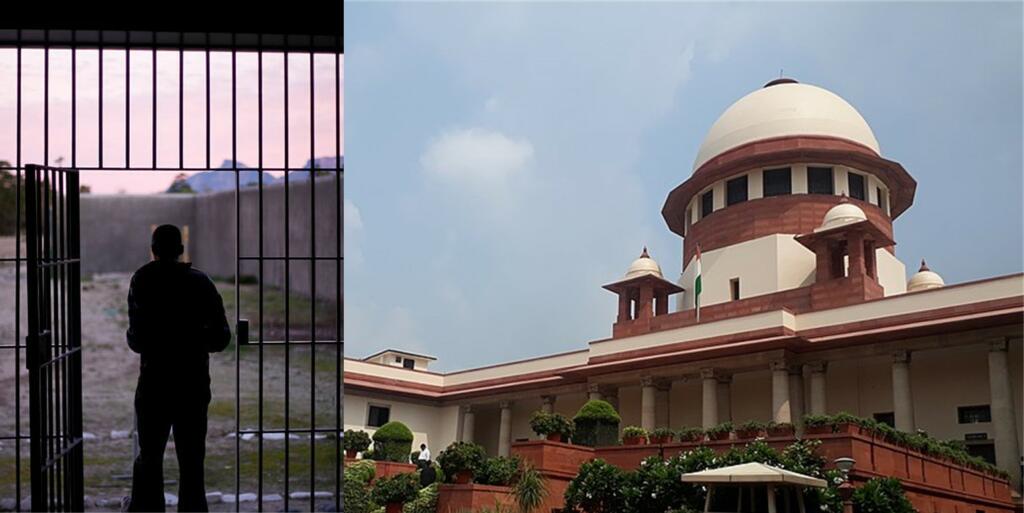You must have heard the name of Maharshi Valmiki. Before gaining this status, he was a dacoit. The transformation became possible only because society accepted his remission. The idea has found its place in the modern legal system too. Remission is legally available to every convict. The Supreme Court also has clear guidelines about it.
Issue at hand
8 convicted criminals recently approached the Apex Court through a writ petition. These people had once constituted an unlawful assembly and killed 2 people with weapons like sword, axe and wooden stick among others.
They were charged under IPC Section 147, 148, 302/149, 307/149 of IPC and Section 3(2)(5) of the Scheduled Caste and Scheduled Tribes (Prevention of Corruption Act). A Special Judge in Durg district of Chhattisgarh found them guilty and sentenced them to life imprisonment. Later, the Chhattisgarh High Court also upheld the decision by the lower Court.
The problem with these petitioners is that they were not getting punished under the popular meaning of life imprisonment. It was established in the Bhagirath case that life imprisonment means jail term for a minimum 14 years. Looking at the prevalent misuse of this principle, the Apex Court has reaffirmed in 2012 that life imprisonment would mean imprisonment for life.
Remission was only option
Resultantly, all 8 convicts had no other option than to revert to demand of remission. They submitted an application for remission under Section 432(2) of Criminal Procedure Code (CrPC) to Jail Superintendent.
According to the norm, the Jail Superintendent then consulted the Sessions Court. The Court studied the gravity of their crimes and refused to acknowledge any chance of remission for them. Subsequently, the Law Department and the Director General of Jail and Correctional Services also agreed with it.
Meanwhile, Ram Chander, one of the convicts had filed a writ petition before the Apex Court. In that case, the Apex Court had directed the Special Judge to provide a careful reading to the case. The Judge had to ensure that he follows the guidelines for remission established in Laxman Naskar vs. Union of India case
Guidelines regarding remission
While deciding on remission of a convicted criminal, the Court has to check whether the crime was done as a part of personal enmity or it is a grave offence against society at large. If it is former then the Court can remiss his or her sentence.
Similarly, if the convict has lost his capability to commit such crime and there is negligible possibility of similar crime being repeated in future, the sentence can be reduced. Additionally, if the convict is from a poor background and it does not serve any fruitful purpose to languish him in jail, the Governor can remit his or her sentence under Article 161 of the Constitution.
After taking all these factors into consideration, the Special Judge had recommended remitting the sentence of Ram Chander. Encouraged by it, other accused also approached the Apex Court through writ petition under Article 32 of Constitution.
Also Read: NJAC is the past! Government Representative to revamp Collegium
Some hope for convicts
Even in this case, the Apex Court found that guidelines prescribed in the Laxman Naskar case were not properly followed. In other words, authorities in charge of deciding the remission of sentences had not given proper reasoning as to why these people should not be provided with reduced sentences.
The Court passed the same order which it had passed in the Ram Chander case. Now, authorities will take due deliberation before returning the application of these people. Additionally, whether it is rejected or accepted, it will have to be in writing and should satisfy the Conscious of the Court, in addition to be in accordance with aforementioned guidelines.
Letting a convicted criminal scot-free after jail term is one of the riskiest provisions. At the same time, it can’t be ignored that every human, no matter how bad he or she is, has some form of divinity. It is essential for a society to restore that divinity. Remission is one such way. Off course, that doesn’t mean that it has to be done without proper checks and balances.
Support TFI:
Support us to strengthen the ‘Right’ ideology of cultural nationalism by purchasing the best quality garments from TFI-STORE.COM
Also Watch:
https://www.youtube.com/watch?v=VU2tz1rwhhA
